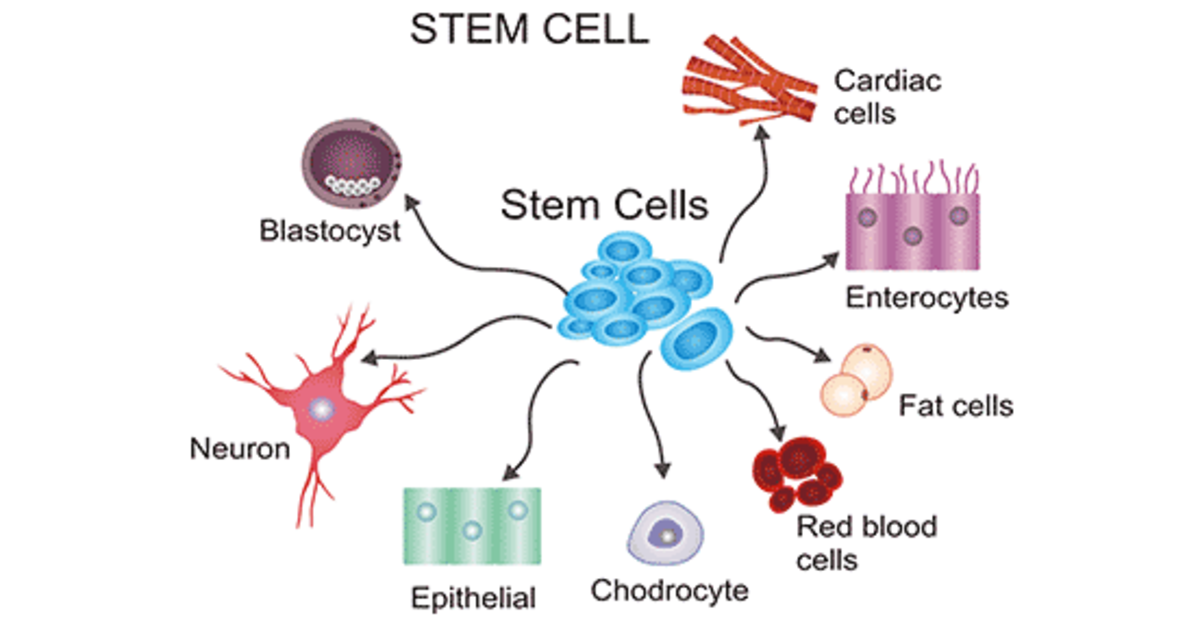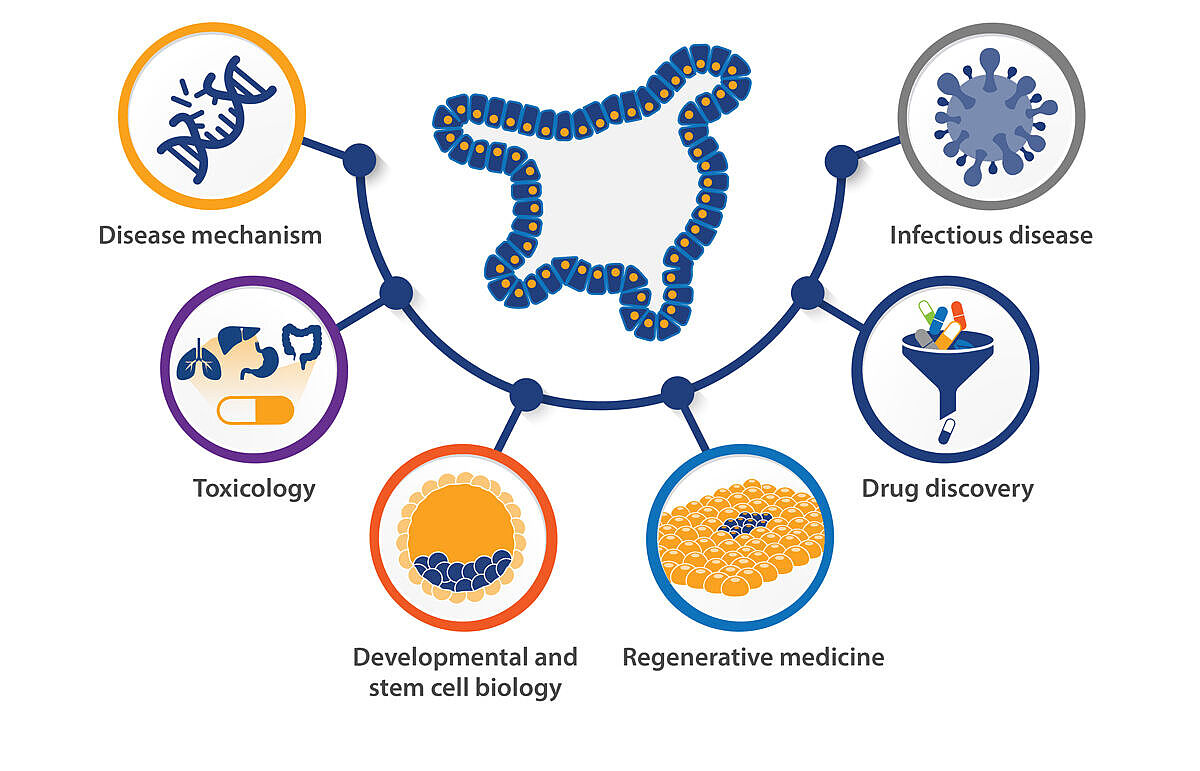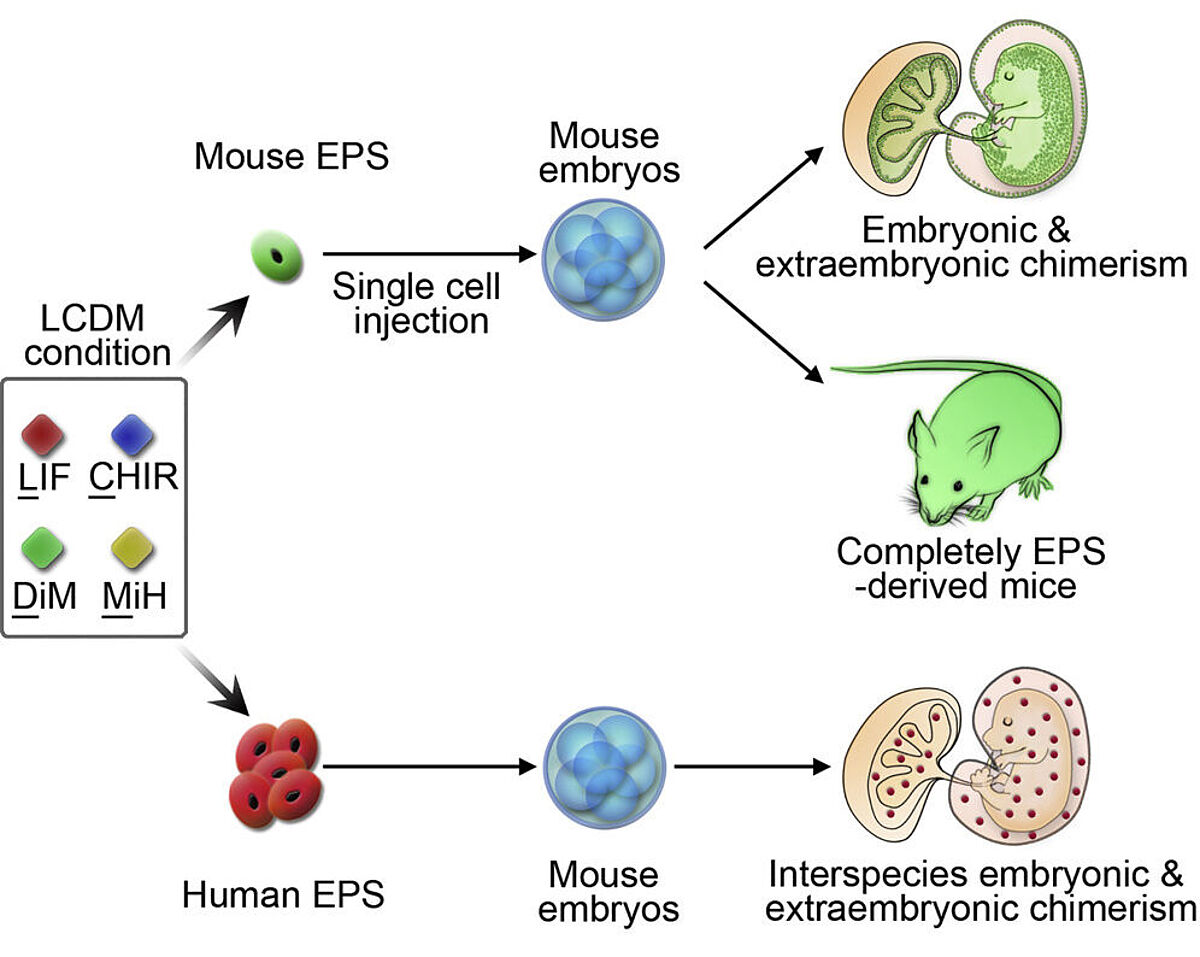Stem cells are unspecialized cells with the unique abilities to self-renew and differentiate into other cell types. They represent powerful tools for studying development and investigating disease mechanisms, and have vast potential for use as cell-based therapies.
What are the different types of stem cells?
Stem cells can be broadly divided into two categories: pluripotent stem cells and adult stem cells. Pluripotent stem cells comprise embryonic stem (ES) cells, which are derived from the inner cell mass of the blastocyst (the early stage of a mammalian embryo that is formed approximately five days after fertilization), and induced pluripotent stem cells (iPSCs), which are created by reprogramming mature adult cells into an ES cell-like state through the expression of genes that regulate pluripotency.
A defining feature of pluripotent stem cells is their ability to form almost any cell type (ES cells cannot form the cells of the placenta). This is in contrast to adult stem cells, which are found in tissues or organs and are instead multipotent, meaning they are restricted to differentiating into the cell types of the tissue or organ in which they reside. While ES cells give rise to mature mammalian organisms, adult stem cells serve to generate replacements for any cells that are lost due to natural wear and tear, disease, or injury.
Examples of adult stem cells include endothelial stem cells, which give rise to the endothelium (the inner lining of blood vessels and lymphatic vessels); hematopoietic stem cells, which form the cells of the blood; mesenchymal stem cells, which differentiate into cell types such as osteoblasts, adipocytes, myocytes, and hepatocytes; and neural stem cells, which become nerve cells, astrocytes, oligodendrocytes, and other cell types associated with the nervous system.
In addition to the cells just described, other types of stem cells are known to exist. Totipotent stem cells have the ability to form any cell type, including placental cells, and exist during the first few cell divisions of embryonic development. Cancer stem cells are found within tumors and are thought have a central role in relapse and metastasis, making them potential therapeutic targets for preventing disease recurrence. Plants also have stem cells, which share some similarities with mammalian stem cells in terms of how they function.
Stem cell applications
Stem cells have broad utility for scientific research and are widely used to grow organoids, the 3D multicellular in vitro tissue constructs that allow for modeling of development and disease, and testing of experimental drug treatments. Importantly, using stem cells for research reduces the need for animal testing while at the same time providing more physiologically relevant data. For example, stem cell-based in vitro systems have been suggested to better predict toxic risks in humans compared to using established animal models since they eliminate the problem of inter-species variability.
Stem cells also hold vast promise as cell-based therapies and have already been successfully used for bone marrow transplants, corneal transplants, and skin grafts. Conditions for which stem cell therapies are currently being developed include rheumatoid arthritis, muscular dystrophy, Crohn’s disease, multiple sclerosis, Alzheimer’s disease, and cancer, to name just a few.
What are some key challenges for stem cell research?
A major challenge when working with stem cells lies in maintaining the purity and properties of cellular populations. Stem cells should be sourced from a trusted supplier and be cultured under tightly controlled conditions to ensure that differentiation occurs appropriately and only when required. Using a growth medium optimized for the cell type in question is recommended and it is critical that any cytokines or growth factors be sterile and low-endotoxin, as well as have proven biological activity.
Cellular characterization presents further difficulties. Stem cells and their differentiated progeny are identified using techniques such as flow cytometry and immunocytochemistry for detecting markers including cell surface proteins, transcription factors, and intracellular signaling molecules. However, because many cell types exhibit overlapping marker expression, definitive identification usually involves detecting multiple targets simultaneously. High-quality antibody reagents are essential to avoid misidentification that could incur costly delays.
Another challenge for stem cell research arises from the fact that human and murine stem cells have different mechanisms for regulating pluripotency and differentiation. Understanding these differences is key when it comes to reagent selection and protocol optimization.
LubioScience represents some of the most trusted brands in research and works closely with partners such as ACROBiosystems, Proteintech, and Bethyl Laboratories (part of Fortis Life Sciences) to offer a comprehensive selection of stem cell products. These include cell culture media, cytokines, and growth factors, as well as antibodies, antibody panels, and ELISA kits. Contact us today to discuss how we can support your project.
Suppliers
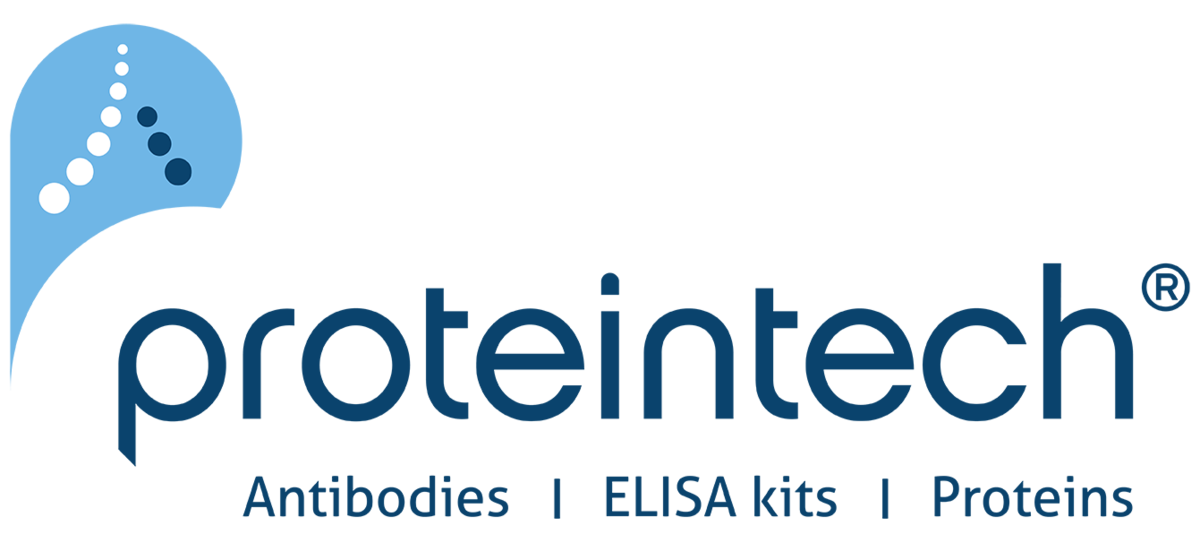
Proteintech - HumanKine - GMP-grade cytokines expressed in human cells
Proteintech HumanKine - GMP grade, fully recombinant cytokines & growth factors. HumanKine proteins are expressed in human HEK293 cells, ideal for cell culture.
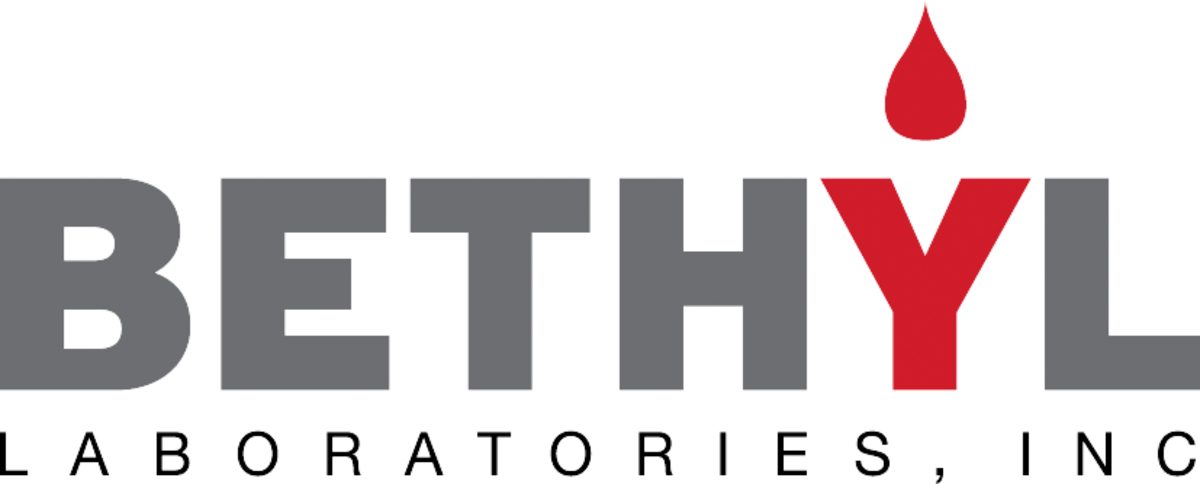
Bethyl Laboratories - Fortis Life Sciences applies B-cell sorting and recombinant DNA technology to deliver high quality recombinant rabbit monoclonal antibodies. The pillar strategy validation ensures that the antibody works in the stated applications.
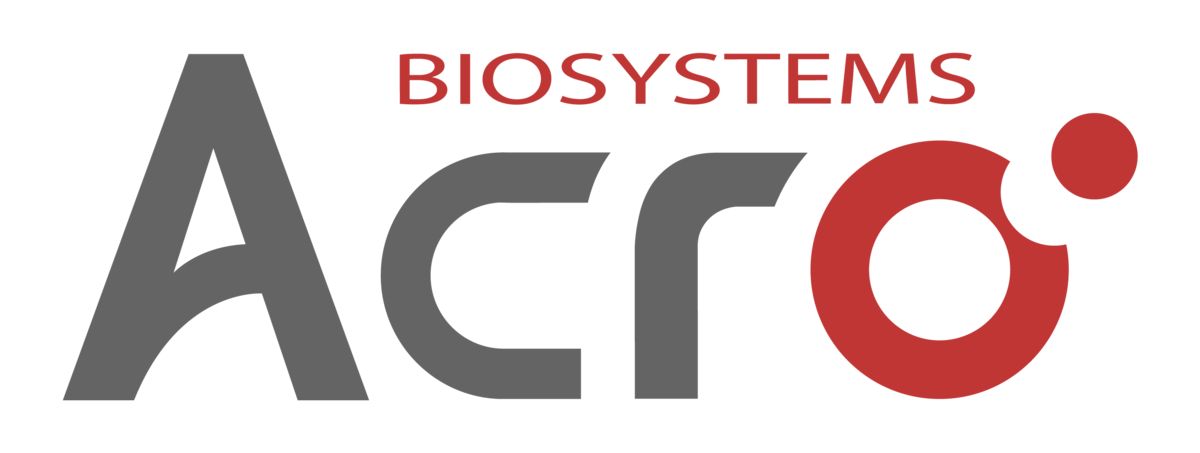
ACROBiosystems
ACROBiosystems is a leading manufacturer of recombinant proteins and other critical reagents to support the development of target therapeutics, vaccines, and diagnostics.
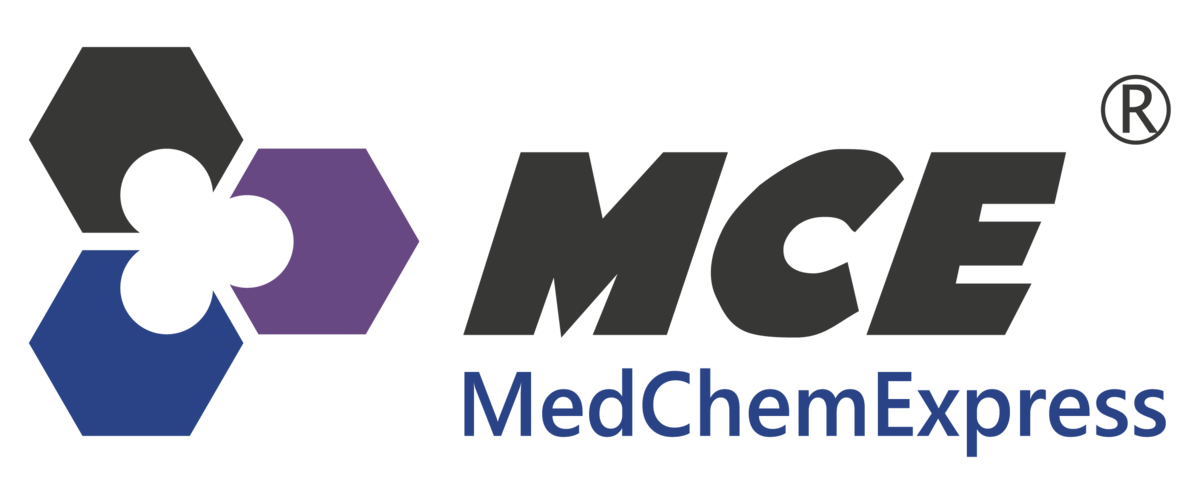
MCE - MedChemExpress
MedChemExpress offers high quality small molecules, reference compounds, APIs & natural compounds and inhibitor libraries. Supreme quality and rigorous QC testing by HNMR, LC-MS and HPLC - stability testing. Most compounds are tested for activity.

TargetMol
TargetMol offers compound libraries and a wide range of high-quality inhibitors, activators, natural compounds, peptides, antibodies, and novel life-science kits for laboratory and scientific use.
About TargetMol Shop for TargetMol products
Download our overview of stem cell related inhibitors here.
References Images
Figure 1. https://www.cusabio.com/receptor/Stem-Cell-Receptor.html
Figure 2. https://blog.crownbio.com/key-organoid-applications

